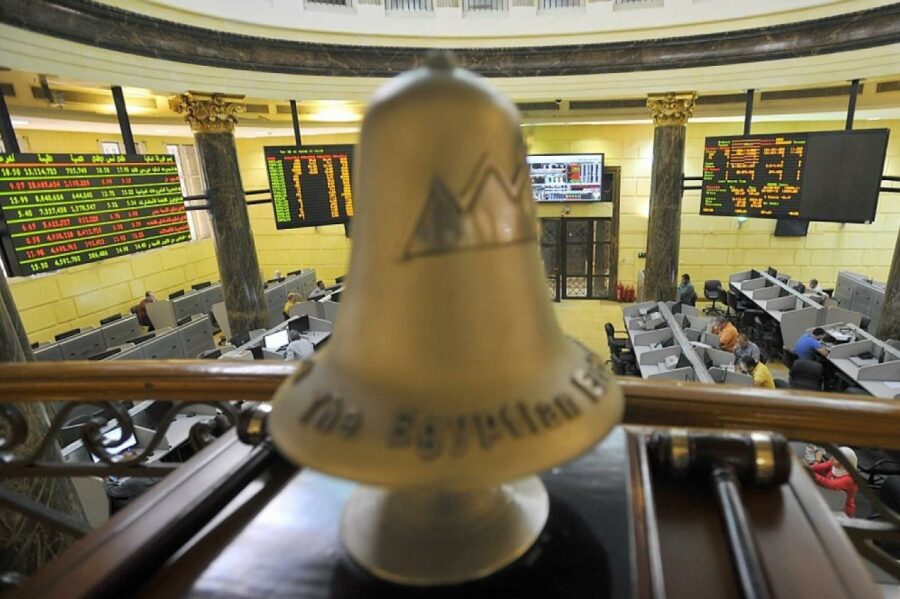The Egyptian government recently unveiled a draft “state ownership policy document”, which specifies the areas of government it will privatize, those that it will continue in partnership with the private sector, and others which it will increase its investments in, over the next three years, in order to confront its stifling economic crisis.
On the fifteenth of this month, Egyptian Prime Minister Mostafa Madbouly revealed some features of the document, announcing that Egypt will list 10 of the largest state-owned and military companies on the stock exchange by the end of this year, and many other assets will be sold over the three years leading to 2025, worth 40 billion dollars, in order to attract foreign investors as well as alleviate the current economic situation.
The Egyptian government aims to increase private sector investment allocations to 65 percent within three years, from nearly 30 percent currently.
On Tuesday, Madbouly and his team reviewed the final draft of the “State Ownership Policy Document”, to be presented to the Cabinet in its final form, and then resubmitted for community dialogue.
The Egyptian government had announced that it had completed the valuation of $9.1 billion out of $10 billion state-owned assets that it intends to offer in the first of the four years in which the state intends to offer assets worth $40 billion in total ($10 billion each year).
It is expected that the selling announcement will take place soon after the International Monetary Fund released a huge loan that the Egyptian government is seeking to obtain in order to deal with its current financial crisis.
Draft “State Ownership Policy Document”
A few days ago, Egyptian newspapers leaked information about a draft “state ownership policy document”, which they expect to be finalized before the end of this month.
The most prominent thing that these leaks dealt with was that the state will exit investments and ownerships from about 79 activities, while maintaining investments in 45 activities, with a tendency to reduce them and allow greater participation of the private sector. The draft indicates the state aims to maintain ownership and investments in about 27 activities, with a tendency to increase them in the future.
The list of government companies to be privatized includes vital sectors such as ports, banks, hotels, communications and education companies, energy and water desalination, 10 public business sector companies, and two companies affiliated with the armed forces.
This is in addition to restructuring the maritime, land and railway transport sector.
The draft identified 3 levels of state presence in economic activities:
The first is to fully exit within 3 years.
The second is to maintain, while stabilizing and reducing government investments, while allowing the participation of the private sector.
The third is to maintain while stabilizing or increasing investments and allowing the participation of the private sector.
Some of the advantages of listing such entities on the stock exchange is attracting foreign exchange earnings, and provide a low-cost source of funding for the government without incurring debt burdens.
Ports’ offerings are strategic
It is expected that the listing of the strategic ports on the stock exchange will contribute to restoring the appetite for foreign investment, especially those of oil-exporting countries that today are experiencing peak economic performance, due to the importance of the strategic entities on offer.
The relationship between Egypt and the Gulf states is considered strategic, and the GCC is expected to garner an important share of the offerings.
Several Gulf countries, including Saudi, the UAE, Kuwait and Qatar, who in April delivered up to $22 billion to Egypt to help it overcome a currency crisis.
Also, this step will certainly have a positive impact on the transport and trade sector, as it will lead to an increase in the number of state companies traded on the Egyptian Stock Exchange, which will contribute to attracting new investors to the sector.
Noting here that ADQ (can you check if this is ADQ?), one of Abu Dhabi’s sovereign funds, acquired last April 32% of the shares of “Alexandria Container Trading”, as part of a deal that included stakes in 5 companies listed on the Egyptian Stock Exchange for about $1.8 billion.
The government’s decision to merge the ports and list a part in the stock market sparked criticism, considering this sector a national security, prompting the Egyptian Minister of Transport, Kamal al-Wazir, to defend the government’s plans in this field, saying, “No sale… the government will remain a supervisory authority.”
Economic situation
This major decision comes at a time when the Egyptian economy is suffering from an economic crisis as a result of the Russian-Ukrainian war, severe pressures on the foreign exchange market and the local currency, a decline in foreign exchange revenues, an increase in the cost of imports, especially grain, food and fuel, due to the repercussions of the war, and an increase in wheat prices globally.
“The repercussions of the war have put a heavy burden on us financially. We expect 130 billion Egyptian pounds ($7.1 billion) in immediate effects, as well as 335 billion Egyptian pounds ($18.3 billion) in indirect effects as a result of higher prices for commodities such as wheat, oil and even interest rates,” Madbouly said, when he announced the bold decision.
The bold characterization is in order, as it came after years of accusations of state companies crowding out private investments, for the government to draw a roadmap with its huge project through which it boosts the private sector share in the economy.
Egypt achieved economic growth in the first nine months of the current fiscal year, reaching 7.8 percent, compared to 1.9 percent a year ago. The growth rate reached 5.4 percent in the third quarter of the current fiscal year, compared to 2.9 percent a year ago.
Economic growth forecasts for the next fiscal year 2022-2023 have been cut to 5.5 percent, down from the 5.7 percent projected before the Russia-Ukraine crisis.








